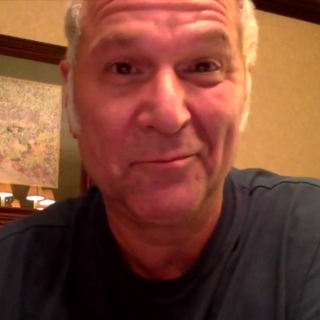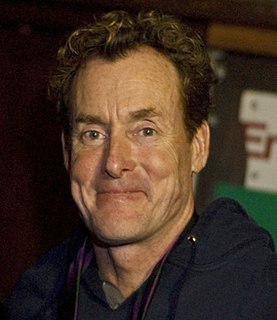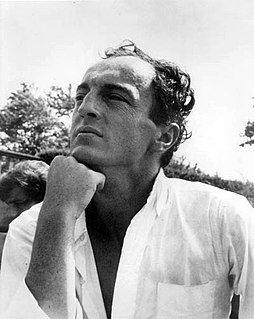A Quote by Edward Abbey
Writers should avoid the academy. When a writer begins to accept pay for talking about words, we know what he will produce soon: nothing but words.
Related Quotes
A writer is a person who cares what words mean, what they say, how they say it. Writers know words are their way towards truth and freedom, and so they use them with care, with thought, with fear, with delight. By using words well they strengthen their souls. Story-tellers and poets spend their lives learning that skill and art of using words well. And their words make the souls of their readers stronger, brighter, deeper.
I’m not too keen on talking. I always have the feeling that the words are getting away from me, escaping and scattering. It’s not to do with vocabulary or meanings, because I know quite a lot of words, but when I come out with them they get confused and scattered. That’s why I avoid stories and speeches and just stick to answering the questions I’m asked. All the extra words, the overflow, I keep to myself, the words that I silently multiply to get close to the truth.
Get people talking. Learn to ask questions that will elicit answers about what is most interesting or vivid in their lives. Nothing so animates writing as someone telling what he thinks or what he does - in his own words. His own words will always be better than your words, even if you are the most elegant stylist in the land.
Don't be pretentious is my first advice to young writers. This is the big problem - just because you're getting an MFA doesn't mean you have to write for the Academy. Be true to your personality. Don't temper your personality down with words. Don't build defensive fortresses around yourself with words - words are your friends.
Words are pale shadows of forgotten names. As names have power, words have power. Words can light fires in the minds of men. Words can wring tears from the hardest hearts. There are seven words that will make a person love you. There are ten words that will break a strong man's will. But a word is nothing but a painting of a fire. A name is the fire itself.
I've learned a lot about language from reading slush. You can immediately tell if a writer is in control of the narrative. This writer will avoid using too many words like "possibly," "probably," "maybe," "perhaps," etc. He/she will avoid using clichés, as well as a lot of metaphors, and won't take four sentences to say what they could in one (or write a great sentence and follow it up with a bunch of stuff that just weakens it).
Difference of thoughts will produce difference of language. He that thinks with more extent than another, will want words of a larger meaning; he that thinks with more subtilty will seek for terms of more nice discrimination; and where is the wonder, since words are but the images of things, that he who never knew the original should not know the copies?
She tore a page from the book and ripped it in half. Then a chapter. Soon, there was nothing but scraps of words littered between her legs and all around her. The words. Why did they have to exist? Without them, there wouldn't be any of this. Without words, the Führer was nothing. There would be no limping prisoners, no need for consolation or wordly tricks to make us feel better. What good were the words? She said it audibly now, to the orange-lit room. "What good are the words?
It feels as though a very disproportionate number of main characters are writers, because that's what the writer knows. Fair enough. But nothing bothers me more in a movie than an actor playing a writer, and you just know he's not a writer. Writers recognize other writers. Ethan Hawke is too hot to be a writer.
I don't know that I would say words are more political now, particularly after Donald Trump has come into office. I will say that what I notice is that people pay more attention to the words that politicians use. They really want to understand the full nuance, the connotative meanings of those words.
After the first glass of vodka you can accept just about anything of life even your own mysteriousness you think it is nice that a box of matches is purple and brown and is called La Petite and comes from Sweden for they are words that you know and that is all you know words not their feelings or what they mean and you write because you know them not because you understand them because you don't you are stupid and lazy and will never be great but you do what you know because what else is there?



































